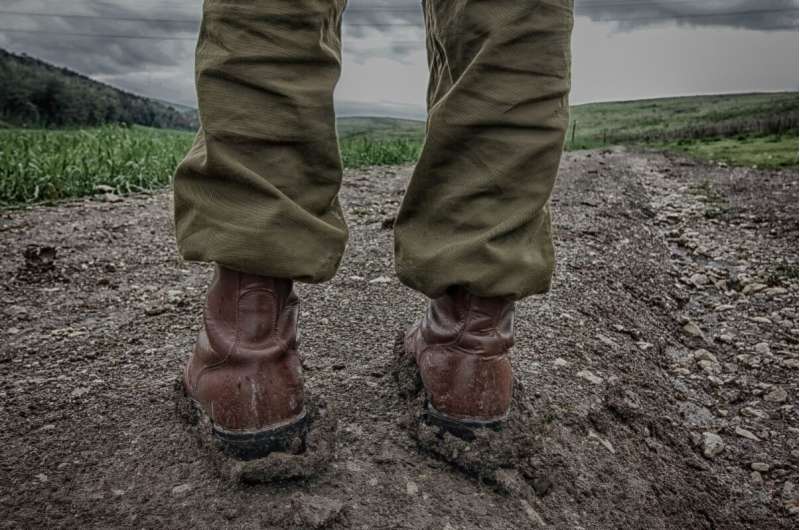This article has been reviewed according to Science X's editorial process and policies. Editors have highlighted the following attributes while ensuring the content's credibility:
fact-checked
trusted source
proofread
Help for 'front-line' family members to assist veterans' mental health needs

Close relatives need more information and help to encourage veterans, soldiers and front-line responders to deal with the stresses and possible trauma in a timely fashion, Flinders University and other experts say.
Encouragement for defense and emergency workers to seek counseling or positive mental health interventions is complex for veteran families, particularly where veterans' reluctance to seek help may lead to family relationship strain and conflict.
"Families need early information, support and recognition by service agencies of the role of the family in encouraging help-seeking," says Flinders University Professor Sharon Lawn, lead author in a new article in the Journal of Mental Health.
"Our study found clear disparities between family and veteran perspectives regarding mental health concerns, with clear barriers connected to the very nature of military culture—stoicism, stigma with fear of being perceived by self and others as weak, career concerns and lack of self-recognition of need.
"This highlights the extent of non-treatment seeking in this population, missed opportunities for early intervention and need for greater support to families to promote help-seeking."
Professor Lawn, who is also director of national mental health lived experience systemic advocacy organization Lived Experience Australia, joined Flinders University veterans' affairs, paramedics and other mental health experts in assessing a group of 1217 Australians, both from the Family Wellbeing Study and Mental Health Wellbeing Transition Study to understand veteran-family help-seeking relationships.
Co-author Associate Professor Ben Wadham, director of Flinders University's Open Door Initiative for Australian Defense Force (ADF) and other veterans, says submissions to the Royal Commission into Defense and Veteran Suicide will help raise more awareness.
"In Australia, research has found worsening rates of mental health over time for ADF members, with fewer supports and being less engaged with support services," he says.
"In addition, high rates of diagnosable mental health conditions have been found in ADF members who have recently transitioned from full-time regular service."
In Australia, the term "veterans" covers current and transitioned ADF members providing they have served at least one full day of Regular military service; in other countries, the term usually refers to ex-serving personnel only.
"By its very nature, service in the military poses potentially high risks of exposure to physical and psychological trauma. There is now a substantial body of international literature highlighting the mental health issues experienced by veterans (both current and former serving military personnel) associated with their service.
"In particular, research has shown that mental health concerns such as posttraumatic stress and depression tend to be higher among military populations than in the general community," the article says.
Professor Lawn says families play a critical role in supporting the well-being of veterans because they experience what goes on "behind closed doors" in the private world of familial ties and emotional relationships.
"While some veterans share their experiences of work-related trauma with those closest to them (their families), others may choose to isolate themselves in an attempt to deal with their psychological stress alone and protect their families from vicarious trauma.
"Either way, families are often the first to know when "something is not quite right"; the first to observe early indicators that the person may be struggling with some form of mental distress."
More information: Elaine Waddell et al, Families' experiences of supporting Australian veterans to seek help for a mental health problem: a linked data analysis of national surveys with families and veterans, Journal of Mental Health (2023). DOI: 10.1080/09638237.2023.2182418



















